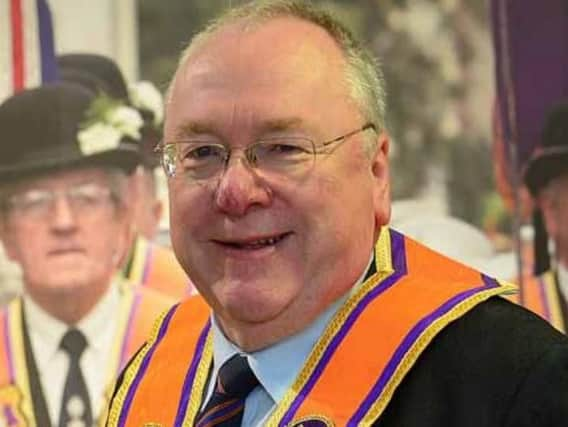Orange leader rejects 'collusion' narrative as he recalls RUC role


Rev Gibson spend 16 years in the secretive, covert policing department at the height of the Troubles during the 1970s and 1980s and said he knows more than most what went on.
“One of the things that annoys me most today is people trying to rewrite history, and say what the police were and what the police weren’t,” he said.
Advertisement
Hide AdAdvertisement
Hide Ad“I know from the inside that the police defended everyone to the best of their ability, but they made mistakes, as everybody does. We had bad apples but we rooted them out where we could find them,” he told the BBC Talkback programme.
“I think the word collusion has been misinterpreted. I think there have been people, yes, who no doubt passed things on, but if they were caught doing that they were thrown out of the police. Collusion, the way it’s used, implies the whole force was involved.”
Asked how he knew it wasn’t widespread and well-organised, Rev Gibson replied: “Being in the job I was, you would have known it and you would have seen it. It didn’t happen institutionally. If someone was a bad apple we tried to find that person. If they were handing information to a terrorist organisation then that is a criminal offence and we dealt with it .
“I think the word missing from all of this is context. There was a reason decisions were made at the time, but going back 20 years later to say ‘why was that decision made?’...nobody knows what else was going on that day.”
Advertisement
Hide AdAdvertisement
Hide AdAsked if the Troubles felt a like war, he said: “It was certainly a terrorist campaign...but to me it wasn’t a war.
Rev Gibson also revealed he voted against the Good Friday Agreement in 1998 “on moral grounds”.
Commenting on his most difficult experience during his RUC years, Rev Gibson recalled the murder of a former colleague.
“There was a chap in Greencastle, Lindsay McCormack, who was your old style neighbourhood beat man.
Advertisement
Hide AdAdvertisement
Hide Ad“A policeman who went out on his own, talked to everybody. I had learned a lot from Lindsay about policing and how police to police in the community. That was a real blow.”
Constable McCormack was murdered in March 1983 on the Serpentine Road in Greencastle.
“He was gunned down at point blank range. Just pure murder,” Rev Gibson said.
“There were other difficult days when I lost good colleagues. The Chinook [crash] was a big thing for me. I knew virtually all of them on the Chinook, many of them were my friends, close friends.
Advertisement
Hide AdAdvertisement
Hide Ad“I remember getting a call that night asking which home I wanted to go to to tell the family.”
Commenting on his most difficult experience during his RUC years, Rev Gibson recalled the murder of a former colleague.
“There was a chap in Greencastle, Lindsay McCormack, who was your old style neighbourhood beat man.
“A policeman who went out on his own, talked to everybody. I had learned a lot from Lindsay about policing and how police to police in the community. That was a real blow.”
Advertisement
Hide AdAdvertisement
Hide AdConstable McCormack was murdered in March 1983 on the Serpentine Road in Greencastle.
“He was gunned down at point blank range. Just pure murder,” Rev Gibson said.
“There were other difficult days when I lost good colleagues. The Chinook [crash] was a big thing for me. I knew virtually all of them on the Chinook, many of them were my friends, close friends.
“I remember getting a call that night asking which home I wanted to go to to tell the family.”